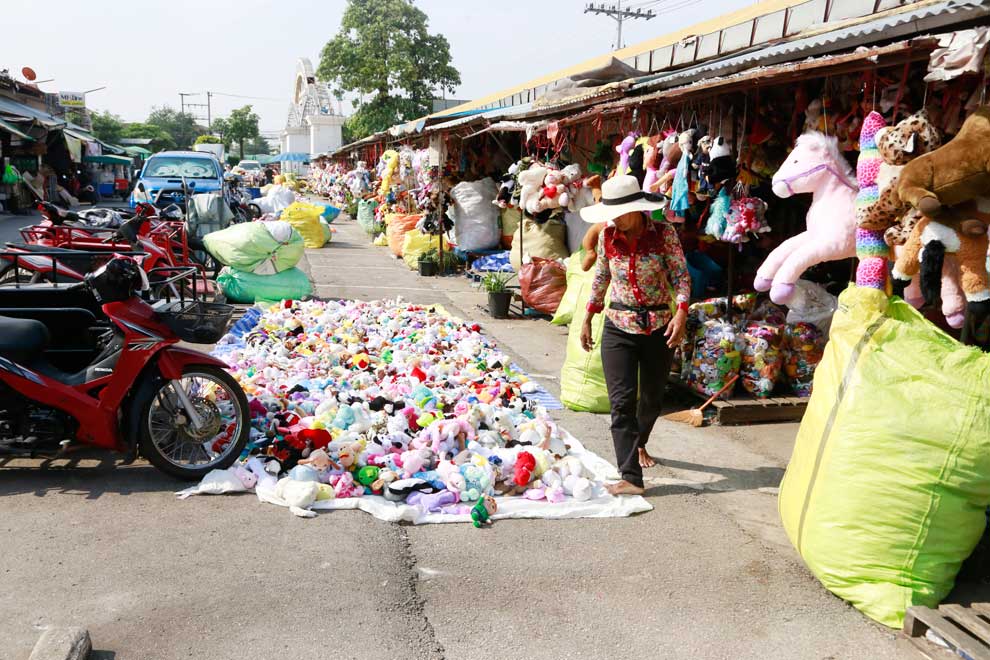
Cambodian vendor at Rong Kluea market on the Cambodian-Thai border. Heng Chivoan
Banteay Meanchey provincial governor Um Reatrey on March 9 led a delegation to open a dialogue with their Thai counterparts to find a solution for Cambodian vendors at the Rong Kluea Market as mounting pressure builds for a reopening of the border from business observers and watch groups.
In a Facebook post on March 9, Reatrey said: “I led a provincial delegation to meet with Thai officials to find a solution for Cambodian vendors affected by the pandemic at the Rong Kluea Market with Sa Kaeo provincial governor Woraphan Suwanun at the Thai custom headquarters within the Khlong Loek-Poipet international checkpoints.”
The meeting he said, was set up to discuss issues pertaining to the pandemic. In the past, the two provinces had worked hard to facilitate border crossings of Cambodian traders to sell their products at the market while observing preventive measure against Covid-19.
Although the meeting concluded positively, he added, a solution has yet to be finalised to reopen the Rong Kluea Market as both parties agreed that more time for further discussion was needed.
In December last year, the two neighbouring provincial governors met to discuss the feasibility of reopening more border checkpoints to allow Cambodian migrant workers to perform work and conduct businesses in Thailand, which included the reopening of the market. However, the two sides mutually agreed to come to a decision pending further assessment and evaluation of health risk posed by the pandemic.
Cambodia Informal Economy Re-inforced Association (Ciera) president Din Puthy urged the two parties to examine the possibility of reopening border checkpoints and enable vendors to get back to business as usual. This appeal was initiated because since authorities announced the closure of the Thai border nearly a year ago, Cambodian vendors were unable to sell their products while goods from Thailand still found its way into Cambodia.
“We have noticed that since the closure of the market during the past year, Cambodian workers and vendors have been prevented from plying their trade across the border.
“There is inequality over movement of goods and people with our Poipet international checkpoint still opened to Thai nationals. If the Thai authorities refuses to reopen their border, why don’t we respond by closing our border to them,” he said.
Puthy has observed that since the closure of the Thai border, Cambodian workers, vendors and residents living along the border encounter financial difficulties resulting from loss of jobs, businesses, and income.
While for those who make daring attempts to cross the border into Thailand, they have to spend double the amount of money and put themselves at risk.
Since announcing the closure of its border in March last year, both Cambodian and Thai border authorities, after bilateral negotiation efforts, have mutually agreed to resume bilateral trade activities along the border at several controlled border checkpoints implementing tight health and safety measure to prevent the spread of Covid-19.











